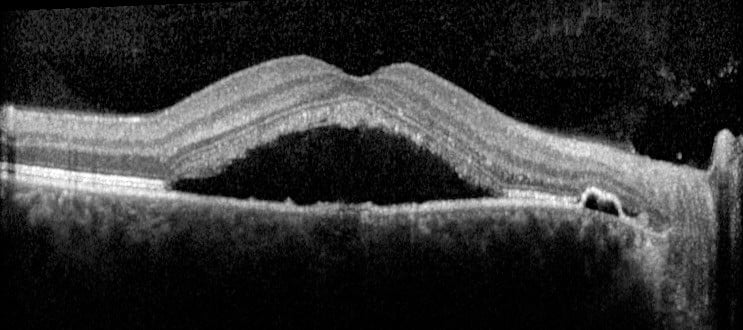Central serous chorioretinopathy (CSCR) – previously called central serous retinopathy (CSR) – is a condition affecting the macula, the light-sensing layer inside the very back of the eye. It occurs when fluid leaks under the macula. The cause of the fluid leakage is poorly understood, but may relate to alteration in the ocular blood vessels, or a disturbance of the normal fluid pumping mechanisms inside the eye.
CSCR may sometimes be associated with steroid use, such as prednisolone tablets, some asthma inhalers, and steroid facial creams. It can also be associated with a ‘Type A’ personality ie. people who often describe themselves as very driven and focussed.
Normal OCT.
An OCT showing a dome of fluid under the central macula.
What are the symptoms of serous chorioretinopathy?
CSCR usually causes blurred central vision, and distortion. It can alter the spectacle prescription, but even with new spectacles the vision typically remains blurred.
Do I need treatment for CSCR?
CSCR often gets better without treatment, so most often it is managed by careful observation in the first instance, in the expectation that vision will get better with time. If the fluid fails to improve after several months, the most commonly used treatments are reduced fluence photodynamic therapy (PDT) and micropulse laser. Some advocate low-dose aspirin.

